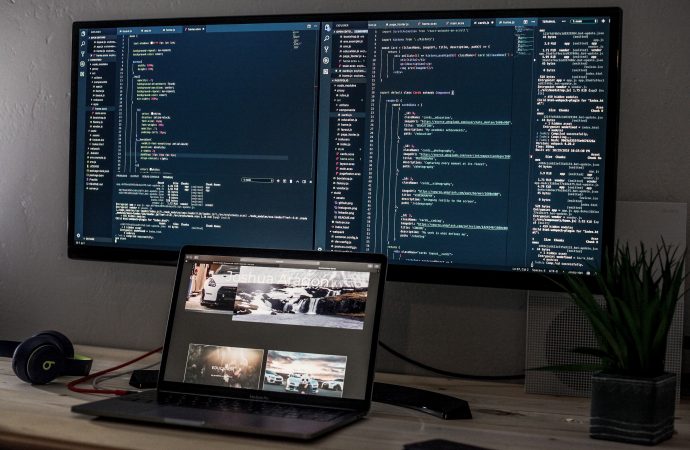From the dawn of time, humans have been fascinated by stories and entertainment. From cave paintings to blockbuster movies, we’ve always sought ways to express ourselves and connect with others through shared experiences. Pop culture is a prime example of this phenomenon – it’s the collective expression of society’s values, beliefs, and attitudes through various
From the dawn of time, humans have been fascinated by stories and entertainment. From cave paintings to blockbuster movies, we’ve always sought ways to express ourselves and connect with others through shared experiences. Pop culture is a prime example of this phenomenon – it’s the collective expression of society’s values, beliefs, and attitudes through various media forms. And in today’s world, where screens are ubiquitous in our daily lives, pop culture has evolved rapidly along with our increasing screen time. In this article, we’ll explore how pop culture has changed over time thanks to TV shows and video games – two mediums that have had a profound influence on our society’s cultural landscape.
The History of Pop Culture
Pop culture has been around for centuries, and its history is as diverse as the forms of entertainment that make it up. From ancient myths and legends to medieval troubadours and Renaissance plays, people have always found ways to express themselves creatively.
However, it wasn’t until the rise of mass media in the 20th century that pop culture truly became ubiquitous. As radio programs, movies, comic books, music recordings and television shows proliferated across society through technological advancements like electricity or cable networks – they brought with them a new era of shared experiences.
In this way, pop culture became much more than just entertainment; it’s an organizational principle connecting different generations together by creating collective memories around stories that capture the zeitgeist of their time. Pop culture now exists everywhere we look: on our TV screens, mobile devices or even streaming services – which makes us wonder what will be next!
The Influence of Television on Pop Culture
Television has had a massive impact on pop culture, influencing everything from fashion to music. Before television became popular, people would often listen to the radio or read newspapers for entertainment and news. However, with the introduction of television in the 1950s, this changed dramatically.
One of the most significant ways that television has influenced pop culture is through advertising. Television commercials have become an essential part of our lives, shaping our opinions about products and services. Advertisers use catchy jingles and slogans to create brand awareness and loyalty among consumers.
Television also played a vital role in popularizing certain types of shows like soap operas, reality TV shows or sitcoms which naturally led to changes in fashion trends as well as conversations around social issues addressed by these programs.
Moreover, iconic characters portrayed on TV shows have become cultural touchstones that remain relevant today such as Homer Simpson from The Simpsons or Carrie Bradshaw from Sex and the City.
Streaming services like Netflix continue to revolutionize TV viewing habits allowing viewers access not just old classics but new series at any time they want thus renewing discussions around their favorite shows online creating even further impacts on pop culture trends beyond traditional broadcast schedules..
How Video Games are Influencing Pop Culture
Video games have come a long way since the days of Pong and Space Invaders. Today, video game companies are creating immersive worlds with complex storylines that rival those found in movies or TV shows. As such, it’s no surprise that video games have become an integral part of pop culture.
Not only do video games offer entertainment value, but they also provide opportunities for social interaction through multiplayer options and online communities. This has helped to create a subculture within pop culture that is centered around gaming.
In addition to influencing pop culture as a whole, video games have also had an impact on fashion trends. Many popular video game characters have inspired clothing lines and accessories featuring their likeness.
Moreover, the success of certain franchises has led to spin-off merchandise such as toys and collectibles which further blurs the line between gaming culture and mainstream pop culture.
It’s clear that video games are playing an increasingly important role in shaping our cultural landscape. With advancements in technology continuing to push boundaries in terms of graphics and gameplay mechanics, it’s likely that we will continue to see even more influence from this medium on pop culture in the years to come.
Conclusion
From its early beginnings to the present day, pop culture has seen a rapid evolution. The introduction of television in the 20th century played a massive role in shaping pop culture and continues to do so even today. Television opened up new forms of entertainment, such as sitcoms, reality TV shows, and late-night talk shows that have captured audiences worldwide.
The advent of video games has also contributed significantly to pop culture’s growth by creating immersive worlds that players can escape into for hours on end. Today’s generation is growing up with smartphones and other devices that provide instant access to these digital worlds.
All in all, screen time has become an integral part of modern-day living. It influences our conversations, interests and shapes our worldviews.
As we move forward into the future with technology advancing at an unprecedented rate, it will be exciting to see how screen time will continue to shape our society’s cultural landscape. What’s clear is that pop culture isn’t going anywhere any time soon – it will continue evolving alongside technological advancements while entertaining generations around the globe!

















Leave a Comment
Your email address will not be published. Required fields are marked with *